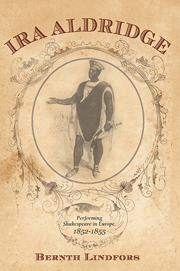Book contents
- Frontmatter
- Contents
- List of Illustrations
- Acknowledgments
- Abbreviations
- Introduction
- 1 Making Up a Company
- 2 Brussels
- 3 Navigating up the Rhine
- 4 Moving into the Interior
- 5 Berlin
- 6 On to Vienna
- 7 Hungarian Rhapsodies
- 8 Comparisons and Contrasts
- 9 Personal and Personnel Matters
- 10 Hungarian Rap Sheet
- 11 Prussia, Germany, Switzerland
- 12 Homeward Bound
- 13 Interpreting Shakespeare
- 14 Further Travels
- Appendixes
- Notes
- Selected Bibliography
- Index
- Miscellaneous Endmatter
3 - Navigating up the Rhine
Published online by Cambridge University Press: 05 December 2013
- Frontmatter
- Contents
- List of Illustrations
- Acknowledgments
- Abbreviations
- Introduction
- 1 Making Up a Company
- 2 Brussels
- 3 Navigating up the Rhine
- 4 Moving into the Interior
- 5 Berlin
- 6 On to Vienna
- 7 Hungarian Rhapsodies
- 8 Comparisons and Contrasts
- 9 Personal and Personnel Matters
- 10 Hungarian Rap Sheet
- 11 Prussia, Germany, Switzerland
- 12 Homeward Bound
- 13 Interpreting Shakespeare
- 14 Further Travels
- Appendixes
- Notes
- Selected Bibliography
- Index
- Miscellaneous Endmatter
Summary
Upon leaving Brussels, Aldridge, instead of heading south to Paris, took his troupe east to Aachen, a small Prussian spa and industrial center in North Rhine–Westphalia that shared a border with both France and the Netherlands. They had been invited to play there by Theodor Eberhard L'Arronge, a popular actor-manager, who in the course of running a successful German-language theater must have kept an alert eye on what was happening in the wider theater world nearby. He certainly must have read the enthusiastic reviews of Aldridge's performances in Brussels in the Deutsche Theater-Zeitung and Allgemeine Theater-Chronik before offering him a contract. And he probably figured that Aldridge and his company would attract larger audiences in Aachen than they had in Brussels, even though they would continue to speak their parts in English. Employing them was a risk worth taking simply because they would be enacting plays by Shakespeare.
German theatergoers loved Shakespeare. Indeed, he may have been more popular there than in England. In the nineteenth century there was a growing “Shakespeare cult” among German scholars and critics that led to widespread public acceptance of his plays as integral components of their national literature. In a study of the reception of English literature in Germany, Lawrence Marsden Price reports that
Since the [late eighteenth century] Germany has done more than any other nation to make his dramas a vital factor of modern life. There the study of Shakespeare is most ardently prosecuted; there his plays are most frequently produced and most appreciatively and critically received by people of varying degrees of education. . . . The course of Shakespearean interpretation since 1800 has been largely dominated by the program of the romanticists [who] sought to render Shakespeare accessible to all their countrymen and thereby to lift them out of the mediocrity of the time. Their efforts were successful: Shakespeare’s sayings have become as proverbial in Germany as in England; his words and themes have been utilized by German composers; and . . . he has appeared as a figure in German novels, stories, and dramas.
- Type
- Chapter
- Information
- Ira AldridgePerforming Shakespeare in Europe, 1852-1855, pp. 32 - 54Publisher: Boydell & BrewerPrint publication year: 2013



